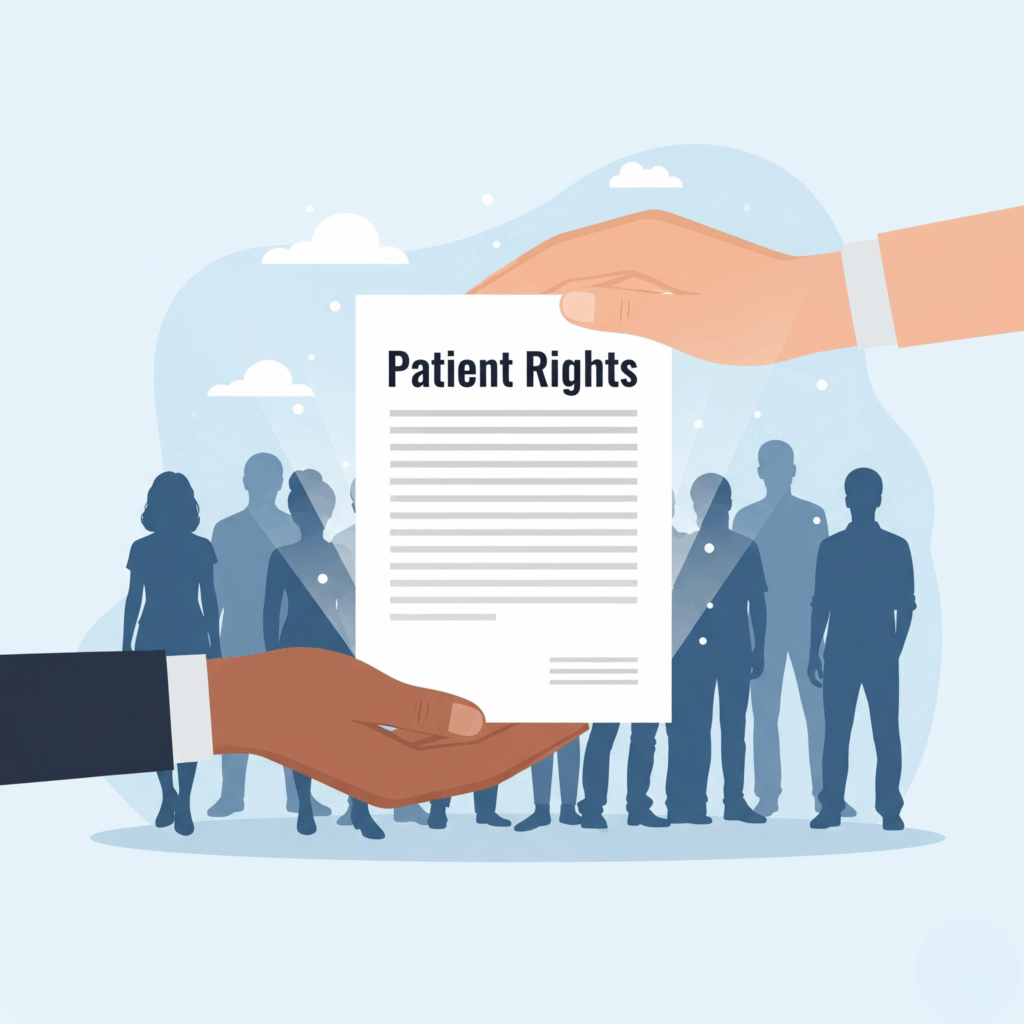What You Need to Know About Benefits and Assistance
In the journey of illness and recovery, patients often find themselves navigating a complex and sometimes overwhelming healthcare system. Beyond medical treatments, understanding your patient rights is paramount. These rights ensure you receive not only appropriate care but also have access to essential benefits and assistance programs that can significantly ease your burden. Being informed empowers you to make well-reasoned decisions and advocate effectively for your health and well-being.
The Foundation of Patient Rights
At its core, patient rights are legal and ethical guarantees that individuals receive appropriate medical care, respectful treatment, and the right to make informed decisions about their health. These rights are not uniform globally; they vary significantly based on national laws, healthcare systems, and cultural contexts. However, common themes emerge from international declarations and national legislations, emphasizing the patient’s central role in their own care.
Key principles often include:
- The Right to Information and Informed Consent: You have the right to receive clear, concise, and understandable information about your diagnosis, treatment options, potential risks and benefits, and alternative treatments. This allows you to give informed consent before any procedure or treatment begins.
- The Right to Privacy and Confidentiality: Your medical records and personal health information are private. Healthcare providers are legally and ethically bound to protect your confidentiality, sharing information only with your permission or as required by law.
- The Right to Access Care: This ensures you receive necessary medical attention without discrimination, regardless of your socioeconomic status, race, gender, or any other personal characteristic.
- The Right to Refuse Treatment: Even after initially consenting, you have the right to refuse treatment, provided you are fully informed of the potential consequences of your decision.
- The Right to a Second Opinion: You are entitled to seek the opinion of another healthcare professional regarding your diagnosis or treatment plan.

Understanding Benefits and Financial Assistance
Beyond the fundamental rights related to care, patients often face significant financial challenges. Understanding available benefits and assistance programs is crucial for mitigating these burdens.
- Health Insurance Coverage: For many, health insurance is the primary means of accessing affordable care. Understanding your policy—what’s covered, deductibles, co-pays, and out-of-pocket maximums—is vital. Don’t hesitate to ask your insurer or healthcare provider for clarification.
- Government Programs: Many countries offer government-sponsored healthcare programs for specific populations, such as the elderly, low-income individuals, or those with disabilities. These can provide substantial financial relief and access to essential services.
- Patient Assistance Programs (PAPs): Pharmaceutical companies, non-profit organizations, and healthcare systems often offer PAPs to help patients afford medications or treatments they might not otherwise be able to access due to high costs. These programs can significantly reduce the financial strain of chronic conditions or expensive therapies.
- Social Services and Support Organizations: Beyond direct medical costs, illnesses can impact daily living. Social workers, patient advocates, and various non-profit organizations can provide assistance with housing, transportation, food, and emotional support.

Advocating for Yourself
Being aware of your rights is the first step; actively advocating for them is the next.
- Ask Questions: Don’t be afraid to ask your healthcare team to explain anything you don’t understand, whether it’s a diagnosis, a treatment plan, or a bill.
- Keep Records: Maintain a personal file of your medical records, test results, medication lists, and communication with healthcare providers and insurers. This can be invaluable for reference and in case of disputes.
- Seek a Patient Advocate: If you feel overwhelmed or unable to advocate for yourself, consider seeking assistance from a patient advocate. These professionals can help you navigate the healthcare system, understand your rights, and communicate with providers on your behalf.
- Know Who to Contact: Understand the proper channels for filing complaints or seeking resolutions if you believe your rights have been violated. This might involve hospital administration, regulatory bodies, or legal counsel.

The Evolving Landscape of Patient Rights
The discussion around patient rights is continually evolving, particularly with advancements in technology and changing healthcare delivery models. Topics like data privacy in digital health, access to experimental treatments, and the rights of patients in a globalized healthcare system are becoming increasingly prominent. Staying informed about these developments will further empower you as a patient.
Remember, your well-being is at the center of healthcare. Understanding and asserting your patient rights is a crucial step in ensuring you receive the best possible care and support throughout your health journey.
Reference
- World Medical Association (WMA): Their Declaration of Lisbon on the Rights of the Patient (1981, amended 1995, 2005) is a foundational document.
- American Medical Association (AMA): Their Code of Medical Ethics provides comprehensive guidance on patient rights and physician responsibilities.
- Journals of Bioethics and Medical Law: Articles in journals like “The Journal of Clinical Ethics,” “Cambridge Quarterly of Healthcare Ethics,” and “Medical Law Review” frequently discuss and analyze patient rights.
- World Health Organization (WHO): Various WHO publications and initiatives touch upon patient-centered care and the importance of patient rights globally.
- National Patient Advocacy Organizations: Information from organizations dedicated to patient advocacy in various countries (e.g., in the US, the National Patient Advocate Foundation) also informs the understanding of practical patient assistance.

Leave a Reply